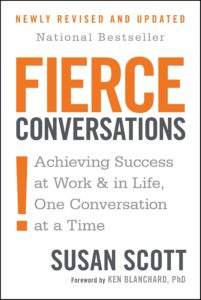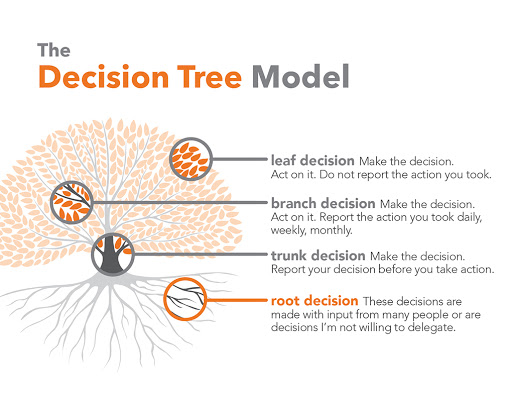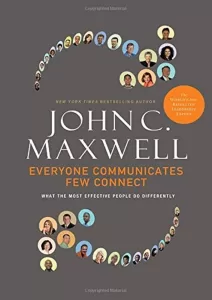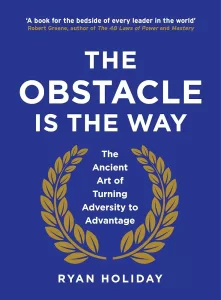Book Review: “Fierce Conversations”
Book: Fierce Conversations by Susan Scott
Reviewer: Bobby Powers
My Thoughts: 9 of 10
One of my favorite books is Crucial Conversations by Patterson, Grenny, McMillan, and Switzler. Since reading that book, I've been on the lookout for other impactful books that teach how to have meaningful difficult conversations. I finally found one. Susan Scott's work contains numerous insights useful for having tough conversations with colleagues, friends, and family. The most memorable one for me was Scott's description of "official truth vs. ground truth," which is described further below.
Takeaways from the Book
Fierce Conversations
- “When you think of a fierce conversation, think passion, integrity, authenticity, collaboration. Think cultural transformation. Think of leadership.”
- “Doesn’t ‘fierce’ suggest menacing, cruel, barbarous, threatening? Sounds like raised voices, frowns, blood on the floor, no fun at all. In Roget’s Thesaurus, however, the word fierce has the following synonyms: robust, intense, strong, powerful, passionate, eager, unbridled, uncurbed, untamed. In its simplest form, a fierce conversation is one in which we come out from behind ourselves into the conversation and make it real. While many are afraid of ‘real,’ it is the unreal conversation that should scare us to death. Whoever said talk is cheap was mistaken. Unreal conversations are incredibly expensive for organizations and for individuals.”
- “Success occurs one conversation at a time.”
- “Begin listening to yourself as you’ve never listened before. Begin to overhear yourself avoiding the topic, changing the subject, telling little lies (and big ones), being imprecise in your language, being uninteresting even to yourself. And at least once today, when something inside you says, ‘This is an opportunity to be fierce,’ stop for a moment, take a deep breath, then come out from behind yourself into the conversation and make it real. Say something that is true for you.”
- “During a fierce conversation, my role is not to say what is easy to say or what we all can say, but to say what we have been unable to say. I try to pay attention to things that may pass unobserved by others and bring them out into the open. The most valuable thing any of us can do is find a way to say the things that can’t be said.”
Ways to Know You Just Had a Fierce Conversation
- You identified and focused on the real issue.
- You didn’t get sidetracked by rabbit trails.
- You took him or her deeper and deeper into the issue until you found the core.
- You weren’t distracted by anything else going on in the room.
- You used silence powerfully.
Interrogate Reality
- “We believe that, in order to execute initiatives and deliver goals, leaders must have conversations that interrogate reality, provoke learning, tackle tough challenges and enrich relationships.”
- Ask yourself, “What are the leaders in my organization pretending not to know? What am I pretending not to know?”
- “Several years ago I was introduced to the military term ground truth, which refers to what’s actually happening on the ground versus the official tactics. One of the challenges worth going after in any organization--be it a company or a marriage--is getting to ground truth...What is ground truth in your organization? Every day companies falter and fail because the difference between ground truth and the ‘official truth’ is significant.”
- “The official truth is available for general circulation and is viewed by most team members as propaganda. Ground truth is discussed around the water cooler, in the bathrooms, and in the parking lot, but it is seldom offered for public consumption and rarely shows up when you need it most--when the entire team is assembled to discuss how to introduce a new product or analyze the loss of a valuable customer and figure out how to prevent it from happening again.”
- “Profitability requires an ongoing interrogation of reality, of ground truth.”
- “In any situation, the person who can most accurately describe reality without laying blame will emerge as the leader, whether designated or not.” -Edwin Friedman
- “The point here is to draw others out with good questions and incredible listening on your part.”
- “A fierce conversation is not about holding forth on your point of view, but about provoking learning by sitting with someone side by side and jointly interrogating reality. The goal is to expand the conversation rather than narrow it. Questions are much more effective than answers in provoking learning.”
The Decision Tree
- “The president of the company I worked for in my late twenties took me through this exercise when I was promoted to my first management role. She drew a rough sketch of a tree and said: 'Think of our company as a green and growing tree that bears fruit. In order to ensure its ongoing health, countless decisions are made daily, weekly, month. Right now in your development, you have a good history of making decisions in these areas [we reviewed those areas]. So let’s think of these areas as leaf-level decisions. Make them, act on them, don’t tell me what you did. Let’s make it our goal to move more decisions out to the leaf level. That’s how you and I will both know you’re developing as a leader.’"
- “She pointed to her sketch of the tree and explained four categories of decisions.”
- Leaf Decisions: Make the decision. Act on it. Do not report the action you took.
- Branch Decisions: Make the decision. Act on it. Report the action you took daily, weekly, or monthly.
- Trunk Decisions: Make the decision. Report your decision before you take action.
- Root Decisions: Make the decision jointly, with input from many people. These are the decisions that, if poorly made and implemented, could cause major harm to the organization.
- “Remind everyone that the goal is to move more and more decisions out to the leaf level.”
- “At a GE plant, managers were told, ‘You have six months to teach everyone who reports to you to get along without you.’”
- “If your employees believe their job is to do what you tell them, you’re sunk.”
Confrontations and Giving Feedback
- “All confrontation is a search for the truth. Who owns the truth? Each of us owns a piece of it, and nobody owns all of it.”
- “When we are preparing to confront someone’s behavior, our obligation is to describe our reality concerning the behavior and then invite our partner to describe the reality from his or her point of view.”
- “People deserve to know exactly what is required of them, how and on what criteria they will be judged (including attitude), and how they are doing. Praise is essential when deserved. And when you praise, keep that conversation separate, focused, and clear. Reserve your praise for specific behaviors and results deserving of celebration and congratulation. Do not use praise as a lead-in to a confrontation.”
- “When we script what others will say and do prior to a conversation, we can be so locked into the responses we’re expecting that when someone responds differently, we do not notice. He may not seem angry right now, but inside I bet he’s seething. I know how he is...Our bodies manifest the pictures our minds send to them, so pay fierce attention to the negative scenario you are running in your mind.”
- “Healthy relationships require appreciation and confrontation.”
- “Fierce conversations cannot be dependent on how others respond.”
Other Leadership Lessons
- “For a leader, there is no trivial comment. Something you might not even remember saying may have had a devastating impact on someone looking to you for guidance and approval. By the same token, something you said years ago may have encouraged and inspired someone who is grateful to you to this day.”
- “I am successful to the degree that who I am and what I live are in alignment.”
- "As a leader, you get what you tolerate.”
- “If you want to build a ship, don’t gather your people and ask them to provide wood, prepare tools, assign tasks. Call them together and raise in their minds the longing for the endless sea.” -Antoine de Saint-Exupery
Think you’d like this book?
Other books you may enjoy:
- Crucial Conversations by Kerry Patterson, Joseph Grenny, Ron McMillan, and Al Switzler
- Difficult Conversations by Douglas Stone, Bruce Patton, and Sheila Heen
- Thanks for the Feedback by Douglas Stone and Sheila Heen
Other notable books by the author:
Want to become a stronger leader?
Sign up to get my exclusive
10-page guide for leaders and learners.







